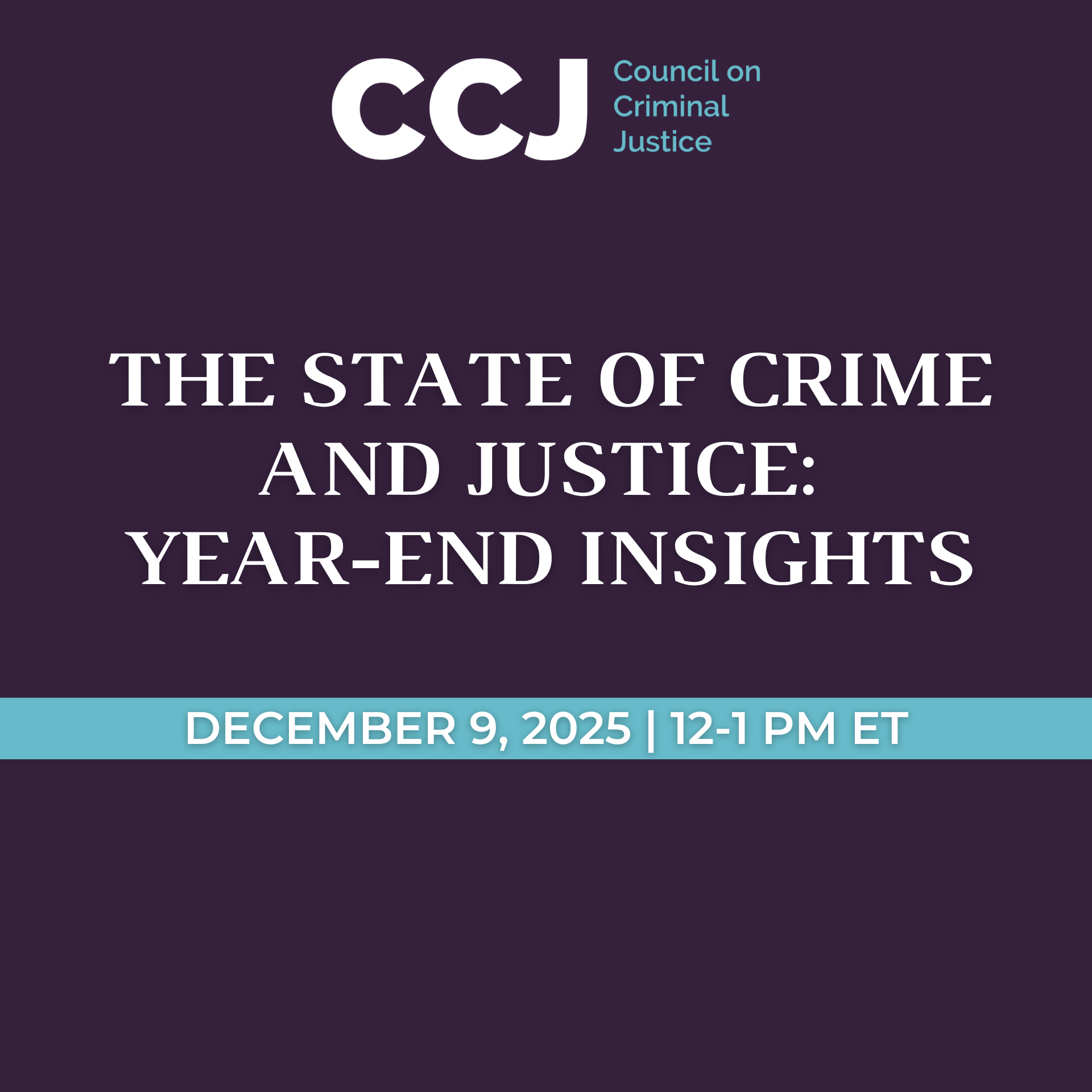Diverse expert panel will examine factors driving veterans’ involvement in criminal justice system, produce recommendations for policy changes
EMBARGOED FOR RELEASE
5:00 a.m. ET, August 23, 2022
Contact: Tania Stewart
tstewart@mrss.com
864-356-1320
WASHINGTON, D.C. – The Council on Criminal Justice (CCJ) today announced the launch of a national commission to examine why so many military veterans land in jail and prison and produce recommendations for evidence-based policy changes that enhance safety, health, and justice.
Chaired by former U.S. Defense Secretary and U.S. Senator Chuck Hagel, the nonpartisan Veterans Justice Commission also includes former defense secretary and White House Chief of Staff Leon Panetta, a former Sergeant Major of the Marine Corps, the chief justice of the Georgia Supreme Court, two formerly incarcerated veterans, and other top military, veterans, and criminal justice leaders. Over the next two years, the 15-member Commission will conduct research and gather testimony to assess:
- the extent and nature of veterans’ involvement in the criminal justice system, and risk factors that drive it;
- the adequacy of transitional assistance for veterans as they reenter civilian life, and what strategies could better prevent justice-system involvement; and
- the nature and effectiveness of the justice system response when veterans break the law, and what other interventions could, or should, occur.
“Criminal justice reform has received significant bipartisan attention in recent years, but the issue of how the system manages the men and women who have served our country has been almost totally absent from the national conversation,” said Hagel, a decorated Vietnam veteran and former U.S. senator from Nebraska who served as defense secretary in the Obama Administration. “Service-related trauma and other legacies of deployment push too many veterans on a path toward incarceration. We can and must do more to understand and interrupt that trajectory.”
Roughly 200,000 active-duty service members leave the armed forces each year. Most transition successfully, demonstrating resilience amid a wide range of risk factors and obstacles. Others, however, struggle with mental health challenges, substance abuse, homelessness, and criminality.
Roughly one third of veterans report having been arrested and booked into jail at least once in their lives, compared to fewer than one fifth of non-veterans. According to the most recent national survey, a total of 181,500 veterans were in U.S. prisons and jails.
The reasons underlying veterans’ justice-system involvement are complex, ranging from combat-related risk factors to “bad-paper” discharges that bar VA benefits such as access to mental health and substance abuse treatment, ineffective procedures to identify veterans upon arrest, and inconsistent diversion mechanisms. Once in the system, many veterans do not receive targeted support to address their conditions, reducing the likelihood of successful reentry.
These and other challenges are summarized in an initial assessment report to the Commission and a video, both of which were also released today.
The Commission director is Army Col. Jim Seward, an Afghanistan veteran who led development of criminal and juvenile justice reforms as general counsel for South Dakota Gov. Dennis Daugaard.
“We honor our veterans with parades, medals, and words of praise when they come home, but we do too little to help them manage the trauma and other lasting damage military service can inflict,” Seward said. “They deserve better. Our commissioners have the expertise, experience, and clout with policymakers across the country to advance solutions that will make a decisive difference in veterans’ lives.”
CCJ Board of Trustees member Gen. Peter Chiarelli, former U.S. Army Vice Chief of Staff, is serving as Senior Adviser to the Commission. Its members are:
- Hon. Chuck Hagel (Chair), 24th Secretary of Defense, U.S. Department of Defense; U.S. Senator (Nebraska)
- Chief Justice Michael P. Boggs, Supreme Court of Georgia
- Carla Bugg, Criminal Justice Services Coordinator, Recovery Organization of Support Specialists
- Dr. Andrea Finlay, Ph.D., Research Health Scientist, Veterans Administration Center for Innovation to Implementation (liaison)
- Pelicia Hall, Senior Vice President, ViaPath Technologies; former Commissioner, Mississippi Department of Corrections
- Greg Hamilton, Chief Customer Officer, CIVICTEC; Sheriff, Travis County, TX (ret.)
- Maj. Gen. Mark Inch, United States Army (ret.); former director, Federal Bureau of Prisons; former Secretary of Corrections, FL
- Sgt. Maj. Alford McMichael, 14th Sergeant Major, United States Marine Corps (ret.)
- Gen. Maryanne Miller, United States Air Force (ret.)
- Justice Eileen C. Moore, Associate Justice, 4th District Court of Appeal, CA; Army Nurse Corps, U.S. Army
- Hon. Leon Panetta, 23rd Secretary of Defense, U.S. Department of Defense; former White House Chief of Staff; CIA Director; OMB Director; U.S. Congressman (California)
- Master Chief Petty Officer Vincent W. Patton III, Ed.D., Senior Vice President for Leadership Development, NewDay USA; United States Coast Guard (ret.)
- Maj. Gen. Angela Salinas, Chief Executive Officer, Girl Scouts of Southwest Texas; U.S. Marine Corps (ret.)
- Dr. Ronald Self, Ph.D., Director, Veterans Healing Veterans from the Inside Out
- Dr. Jo Sornborger, Psy.D.; Executive Director, Operation Mend, UCLA Health
Support for the Veterans Justice Commission comes from The Arthur M. Blank Family Foundation, the National Football League, Craig Newmark Philanthropies, T. Denny Sanford, Southern Company Foundation, and the Wilf Family Foundations as well as the John D. and Catherine T. MacArthur Foundation, #StartSmall, and other CCJ general operating contributors.
About the Council on Criminal Justice
The Council on Criminal Justice (CCJ) is a nonpartisan invitational membership organization and think tank that advances understanding of the criminal justice policy challenges facing the nation and builds consensus for solutions based on facts, evidence, and fundamental principles of justice.
Other CCJ task forces have addressed federal criminal justice priorities, COVID-19 and criminal justice, policing, violence reduction, and Medicaid and reentry. Another task force is currently examining long prison sentences.
To learn more, visit counciloncj.org.



